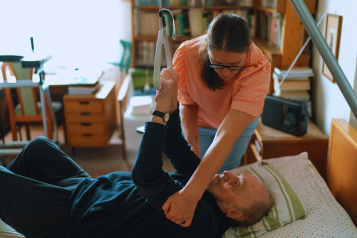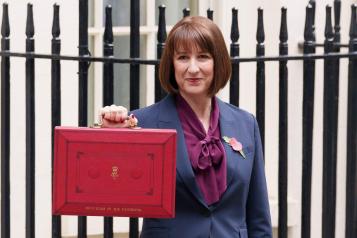What is Adult Social Care?
Do you or a loved one need help with everyday tasks, support at home, or care after illness or injury? Adult social care may be able to help.
Social care is different from the treatment you receive from the NHS. While it can include some medical support, social care focuses on practical help so people can live as independently as possible. This care is usually delivered at home, in a care home, or in the community rather than at a GP practice or hospital.
Understanding what support is available – and how to pay for it – can feel overwhelming. Here are the key things you need to know.
✅ How do I get help through adult social care?
The first step is to contact your local council’s adult social care team and request an assessment.
Depending on your situation, you may receive:
A Care/Needs Assessment – if you need support yourself
A Carers Assessment – if you provide unpaid care for someone else
Discharge to Assess / Home First – if you have just left hospital and need support at home
NHS Continuing Healthcare (NHS CHC) – for people with very complex medical needs and ongoing care requirements (this involves a separate assessment)
Assessments are free, and all adults aged 18 or over are entitled to one.
✅ Who can access adult social care?
You may be able to receive support if you are:
An older person
Living with a disability or long-term condition
Recovering from illness, surgery or hospital treatment
Struggling with daily activities at home
If you have family or friends helping with your care, you may not need to pay for all services. Unpaid carers can also receive support with training, wellbeing and respite breaks.
If you qualify, your council will work with you to create a personalised care plan tailored to your needs.
✅ How do I pay for social care?
The council will carry out a financial assessment (often called a “means test”) to decide whether:
Your care will be free
You will contribute towards the cost
You will pay the full cost
This assessment looks at your income, savings, property and other financial assets.
If you qualify for financial support, your council will give you a personal budget that can be used to pay for local services.
Some people with very complex health needs may receive free NHS Continuing Healthcare. If not eligible, you may still qualify for NHS-funded nursing care, where the NHS pays for nursing support in a care home.
✅ What support can social care provide?
Local authorities are responsible for arranging care services. These may be delivered directly by the council, or by local care providers.
Support can include:
home care - personal care including task such as washing, dressing, personal hygiene and food preparation
residential/nursing care
supported accommodation/extra care housing
day services - social activities, meals, health support, meeting others
equipment/adaptations - to support independent living
information and advice
respite care - short-term care so unpaid carers can take time off
reablement - short-term support to help people regain skills after illness or injury
✅ Where can I get more information?
All local authorities have an information and advice service to help you understand:
Care assessments
Eligibility and financial support
Choosing care providers
Personal budgets
Advocacy
Safeguarding concern
If you or a loved one are struggling to get the social care you need, we want to hear from you. Your experiences help us challenge local services and improve support for everyone.
📞 Contact Healthwatch Cambridgeshire and Peterborough
📧 information service@healthwatchcambspboro.co.uk
✅ What’s your experience?
Is getting the support you need too complicated?
Have you been refused care or struggled after hospital discharge?
Click on the link below, to access more Healthwatch England information, to contact Cambridgeshire County Council or to tell us your story.
Your feedback helps services improve.
Social care is different from the treatment you receive from the NHS. While it can include some medical support, social care focuses on practical help so people can live as independently as possible. This care is usually delivered at home, in a care home, or in the community rather than at a GP practice or hospital.
Understanding what support is available – and how to pay for it – can feel overwhelming. Here are the key things you need to know.
✅ How do I get help through adult social care?
The first step is to contact your local council’s adult social care team and request an assessment.
Depending on your situation, you may receive:
A Care/Needs Assessment – if you need support yourself
A Carers Assessment – if you provide unpaid care for someone else
Discharge to Assess / Home First – if you have just left hospital and need support at home
NHS Continuing Healthcare (NHS CHC) – for people with very complex medical needs and ongoing care requirements (this involves a separate assessment)
Assessments are free, and all adults aged 18 or over are entitled to one.
✅ Who can access adult social care?
You may be able to receive support if you are:
An older person
Living with a disability or long-term condition
Recovering from illness, surgery or hospital treatment
Struggling with daily activities at home
If you have family or friends helping with your care, you may not need to pay for all services. Unpaid carers can also receive support with training, wellbeing and respite breaks.
If you qualify, your council will work with you to create a personalised care plan tailored to your needs.
✅ How do I pay for social care?
The council will carry out a financial assessment (often called a “means test”) to decide whether:
Your care will be free
You will contribute towards the cost
You will pay the full cost
This assessment looks at your income, savings, property and other financial assets.
If you qualify for financial support, your council will give you a personal budget that can be used to pay for local services.
Some people with very complex health needs may receive free NHS Continuing Healthcare. If not eligible, you may still qualify for NHS-funded nursing care, where the NHS pays for nursing support in a care home.
✅ What support can social care provide?
Local authorities are responsible for arranging care services. These may be delivered directly by the council, or by local care providers.
Support can include:
home care - personal care including task such as washing, dressing, personal hygiene and food preparation
residential/nursing care
supported accommodation/extra care housing
day services - social activities, meals, health support, meeting others
equipment/adaptations - to support independent living
information and advice
respite care - short-term care so unpaid carers can take time off
reablement - short-term support to help people regain skills after illness or injury
✅ Where can I get more information?
All local authorities have an information and advice service to help you understand:
Care assessments
Eligibility and financial support
Choosing care providers
Personal budgets
Advocacy
Safeguarding concern
If you or a loved one are struggling to get the social care you need, we want to hear from you. Your experiences help us challenge local services and improve support for everyone.
📞 Contact Healthwatch Cambridgeshire and Peterborough
📧 information service@healthwatchcambspboro.co.uk
✅ What’s your experience?
Is getting the support you need too complicated?
Have you been refused care or struggled after hospital discharge?
Click on the link below, to access more Healthwatch England information, to contact Cambridgeshire County Council or to tell us your story.
Your feedback helps services improve.



